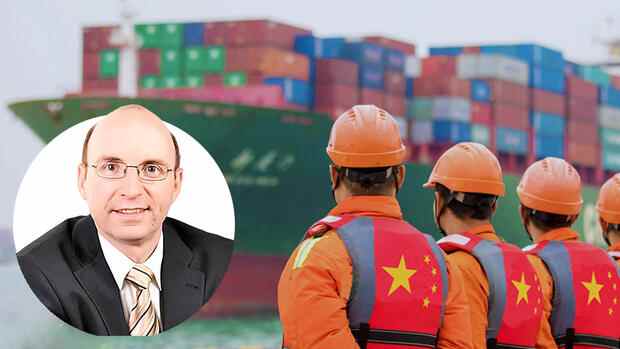The federal government is currently writing its China strategy and is anything but unanimous. This is also due to the fact that China’s state capitalism calls our basic market principles into question.
Adam Smith’s famous model of thought begins to falter: According to him, companies maximize their profits in a self-interested manner, but the national economy benefits because the market economy, price system and competitive order ensure that interests are in harmony.
In short: when companies are doing well, society benefits. But can we still be sure of Adam Smith’s insight regarding China?
German subsidiaries in China want to relocate more and more business activities to the Middle Kingdom and increasingly export from China to the rest of the world. This should reduce our export prospects in the medium term and thus endanger German export jobs.
In addition, German companies are increasingly going to China with the latest technology. What does that do to Germany as a research location? And to what extent are German companies helping the Chinese to reduce their technological dependency?
However, the following also applies: If very high profits are made in China, the majority of which flow to Germany and decisively strengthen employment and capital stock here, there may still be sufficient alignment of interests.
However, it must also be asked whether excessive dependencies do not make individual companies and, ultimately, German politics, vulnerable to blackmail. According to media reports, the Chinese embassy in Berlin has apparently put some German companies with a large exposure to China under pressure to lobby politicians for the Cosco takeover of the Hamburg port terminal. Otherwise there would be consequences for your own business in China.
And what happens if Taiwan is invaded? In the event of extensive Western economic sanctions, would rescue packages be called for threatened jobs in Germany and taxpayers would have to take responsibility for losses in China?
It would be a serious regulatory problem if the interests of companies and the economy were no longer aligned in important areas. In the market economy, it is apparently rational for some companies to rely even more on China.
>> Read here: Steinmeier warns of China’s new course in unusually sharp words
If politicians want to continue to adhere to the basic principles of the market economy, what can they do to reduce excessive dependency on China? A core question for the China strategy is therefore how we can cleverly change the framework conditions and thus the incentives for companies. A small but symbolic adjustment screw would be to make the federal government’s investment guarantees for China investments by German companies more restrictive.
China’s subsidy policy puts the principle of open markets under pressure
The second great economist, David Ricardo, devised a foreign trade model according to which trade enables countries to increase their wealth by specializing in their comparative advantages. Our belief in the principle of open markets is based precisely on this insight.
But around 20 years ago, Paul Samuelson, the pope of foreign trade theory, showed: In the same model, a rapid technological catch-up by China compared to the USA can lead to welfare losses in America.
Because China is contesting the established export markets of the industrialized countries. This applies all the more because China sends its companies highly subsidized onto the world market and is increasingly penetrating our specialization fields with the Made-in-China-2025 strategy. The strategy envisages Beijing upgrading Chinese industry and, for example, significantly increasing the proportion of domestic core materials by 2025.
Even if you have to be careful with economic models, politicians should consider a scenario of possible welfare losses in their China strategy. A rapid transfer of the latest technology to China therefore appears highly problematic.
Unless the WTO curbs China’s unfair competition with reformed rules, it will die
China’s unfair competition, which is forcing more and more efficient European companies out of the market, should be stopped by a reform of world trade rules. Multilateral cooperation as another principle of our actions does not work if a major player does not participate.
China has been blocking fairer rules against industrial subsidies in the World Trade Organization (WTO) for years. If this continues and China gains more and more market share, the WTO will die a slow death.
Ultimately, the following applies: either we get China to cooperate or China also forces us not to cooperate. And to do things that we really don’t want to do, such as relying on extensive industrial policies and wasting taxpayers’ money on subsidy races.
In order to persuade China to cooperate, we should establish a new, cross-regional trade agreement with many market-economy and like-minded countries – with liberalization steps that go beyond the WTO and, above all, with better competition rules. China could join later, but only if it sticks to the rules.
As a last resort, we may even have to go so far as to make this agreement an alternative international trade organization. We may have to jeopardize the WTO to save it.
The author: Jürgen Matthes heads the Global & Regional Markets department at the German Economic Institute (IW).
More: Comment – German-Chinese relations are at a turning point
